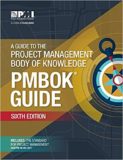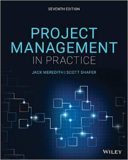Project managers are in high demand across every engineering discipline. To be succesful requires techincal and leadership skills, as well as business acumen - and the right processes to maximize the likelihood of success. In this course, you'll learn to lead a project throughout it's lifecycle using predictive, agile, and hybrid approaches to delivery. This changes how you develop requirements, schedule and plan work, identify and manage risks, and ensure delivery within budget. More importantly, it requires a diverse set of leadership skills to set the goal and motivate project teams to deliver value. And you'll need to do this while ensuring that projects work within the constraints of the business and drives progress toward your company and your customer's strategic goals.

 Data Analytics for the Project Manager
Data Analytics for the Project Manager



